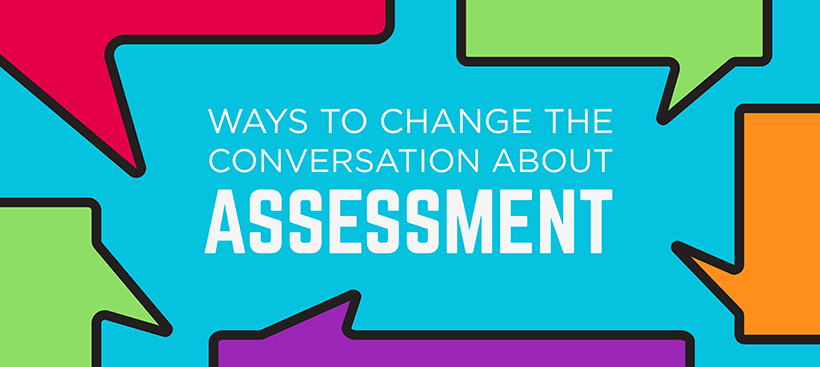From the NCTE Standing Committee on Literacy Assessment.
This post was written by NCTE member Eric D. Turley, a member of the NCTE Standing Committee on Literacy Assessment.
Note: This blog was drafted on Thursday, March 26, 2020.
Today was my first day teaching through an online platform. Last week, while I was on spring break, the superintendents of St. Louis County closed all public schools until April 22nd due to the spread of COVID-19. So this morning I met with three of my classes on Zoom and I will meet (virtually) with the other two classes tomorrow.
Along with closing public schools, my state, Missouri, canceled our End of Course exam, and my high school paused our data collection practices. If, as the old adage goes, you assess what you value, then I must admit that at this moment in time, I am not interested in my sophomores’ ability in blending modes of writing within an essay or my juniors’ capability to synthesize sources. What I value right now is knowing that my students are okay.
I haven’t seen my students in thirteen days and I just need to know if they are okay. Actually, I want to know more: How are they feeling—physically, mentally, emotionally? What emotions are they experiencing and how are they processing them? Are they taking care of themselves? How are the members of their families feeling? Was a parent recently laid off? How is the family business doing? Are they helping watch their siblings because of the school closings? Do they have food? Do they have access to food? Are they in jeopardy of losing their housing? And I could list a hundred additional questions I’d love to ask each of my students.
So today I started my online class with an assessment—a few questions to see how my students are doing in this time of change and challenge.
- What is a simile/metaphor that describes your last 24 hours?
- When was the last time you were outside and what did you do?
- Who was the last person you had a face-to-face conversation with and what was the purpose of the conversation?
We spent most of our time together sharing. I heard about walks around the block and to the park; I heard about FaceTime sessions with grandparents and breakfasts with siblings, and the figurative language included many cliches that often show up in high school poetry (like paint drying on the wall, prison, like a dog in a kennel, hibernation). And it was through the sharing that I could tell that my students were okay.
I wish it were that simple. In each class I had a handful of students who did not attend the Zoom meetings. Some students forgot, and others had tech issues (which we are working to resolve). However, through a few emails and phone calls from the school counselor, I learned that a few students are not okay right now.
Teachers are always assessing. We need to know how our students are doing before we move into any of our curricular goals. We need to make sure our students are safe and healthy before learning can take place in our classrooms. We know this and often instinctually check for it through our routines and rhythms of our classrooms.
As we move forward in this new time of online learning, for those of us who still have contact with our students, we need to shift our focus. We need to make sure students are creating routines, exercising, going outside, and staying connected to friends and families. In short, teachers’ first priority must be to assess our students’ wellbeing. So let’s begin to think how we can use literacy learning to assess our students’ social, emotional, and physical well being in these times of disruption.
When I know my students are okay, I can get back to the normalcy of teaching. When I find out my students are not okay, I can connect them to our school’s counselors, social workers, administrators, and other support team members.
In my first day of online teaching, it is clear to me that for the next month (and possibly the rest of the school year) I need to make an extra effort to make sure my students are okay. This is my first assessment priority.

Eric D. Turley is a high school English teacher at Kirkwood High School in Missouri. He co-authored (with Chris Gallagher) Our Better Judgment: Teacher Leadership For Writing Assessment (NCTE, 2012) and is a past recipient of CCCC’s James Berlin Outstanding Dissertation Award.

